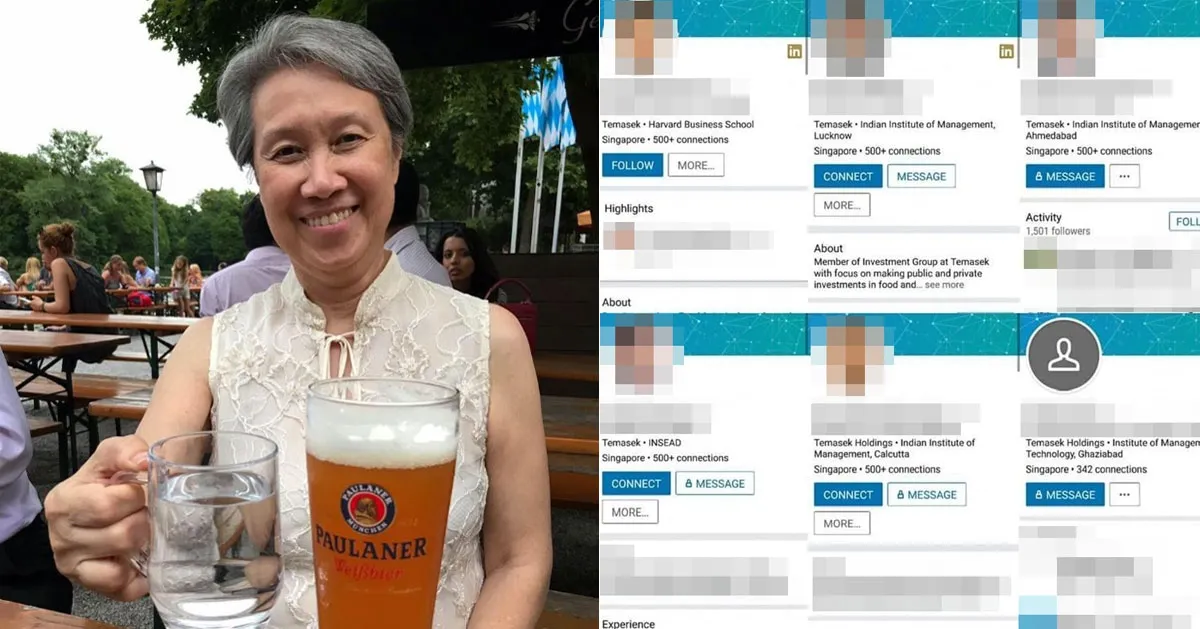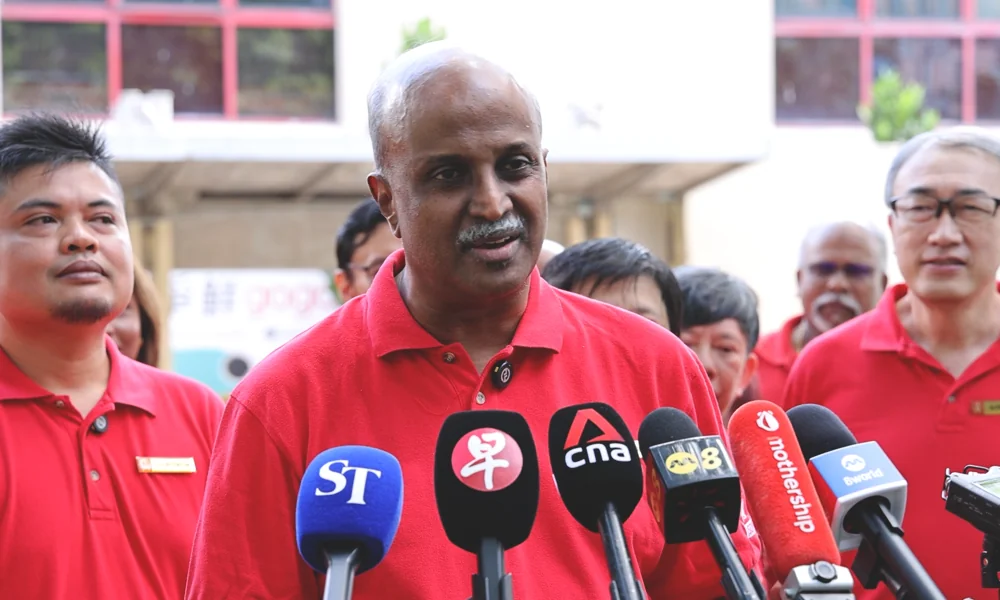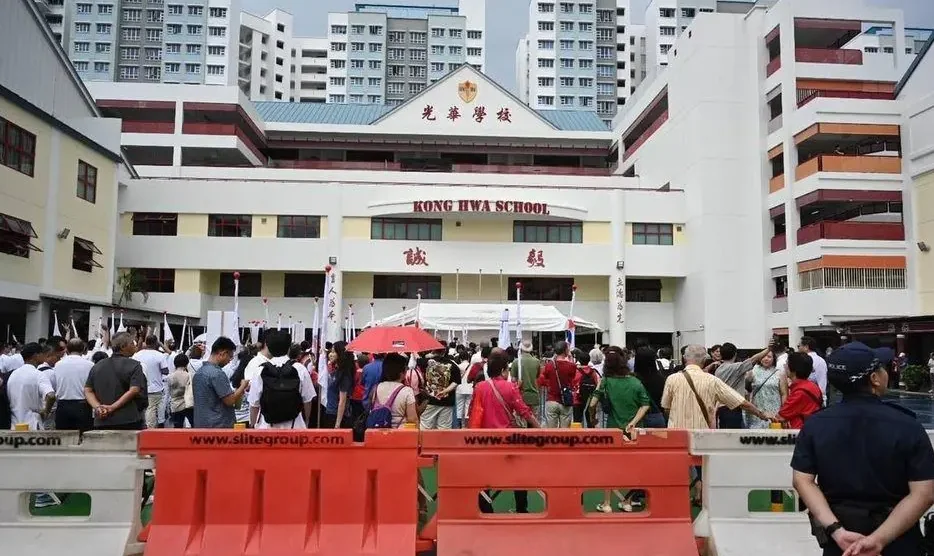何晶回击无端指责员工及投诉招聘不公的人
为她的员工辩护

为她的员工辩护

黄志明与卡拉·马尼卡姆的对决揭示信任与分裂的较量

2025年5月3日,Jalan Kayu单选区(Jalan Kayu SMC)的29,565名选民将站在十字路口,选择两条崎岖路径之一:人民行动党(PAP)职总秘书长黄志明,背负2024年职总英康收购案的污点,宛如一辆伤痕累累的战车;抑或红点团结党(RDU)的激进教育家卡拉·马尼卡姆,其2021年前进党诉讼风波暴露的个人主义倾向,恰似一艘独木舟在政治风浪中摇摆 [译注:2025年4月22日,红点团结党宣布退出Jalan Kayu单选区,支持工人党参选,以避免多角竞争。本文基于此前候选人假设撰写]。
黄志明曾于2009至2013年担任新加坡空军总长,2013至2015年升任三军总长,展现军事生涯的严谨与权威。2015年,他代表人民行动党当选巴西立-榜鹅集选区国会议员,但在2020年竞逐盛港集选区时,以47.88%的得票率铩羽而归。自2018年起,他担任职总秘书长,力推劳动力发展和工人权益政策,试图为职场注入活力。然而,2024年职总英康收购案令其公信力蒙尘,被舆论抨击“要么纵容利益输送,要么严重失职”,如同一座信任堡垒被风暴侵蚀。
卡拉·马尼卡姆是单亲母亲、特殊教育专家兼中小企业主,拥有终身教育硕士学位,散发草根魅力。她是新加坡武装部队首批女军官之一,服役七年,官至中尉,彰显坚韧。2020年,她代表前进党竞选义顺集选区,获38.76%选票;同年12月被开除,2021年提起“不当终止党籍”诉讼,后和解。此事暴露其“独行侠”作风。如今,她加入红点团结党,聚焦职业培训和生活成本压力,试图以小党之力撬动选民心弦。
2024年7月,职总与德国保险巨头英杰华(Allianz)提出22亿新元的收购案,宣称将增强职总英康的竞争力。8月,黄志明与职总主席达纳拉克希米发表联合声明,信誓旦旦保证英杰华将维护英康的社会使命。然而,细节如暗礁般浮现,险些葬送交易。英杰华计划提取18.5亿新元资本,近半投资可迅速回笼,恐耗尽维持低保费的储备金,宛如从社会保障的根基抽梁换柱。2024年10月14日,文化、社区及青年部长唐振辉代表政府果断叫停交易,认定其背离英康2022年公司化目标,即强化财务实力以惠及保单持有人。
黄志明坚称职总中央委员会对资本提取计划毫不知情,试图撇清责任,但前英康首席执行官陈瑞财痛斥该计划“违背诚信”,直指交易暗藏私利。新加坡管理大学副教授陈庆文直言,这种无知“令人瞠目结舌” [译注:意指难以置信的疏忽],如同指挥官在战场上迷失方向。2025年1月,黄志明将就业不稳定性归咎于人工智能,回避外籍劳工政策争议,被批“高高在上”,如同一座与民意脱节的孤塔。2020年盛港集选区失利已暴露其政治软肋,选民不禁质疑:他究竟是工人代言人,还是行动党机器的忠实齿轮?
2021年7月,卡拉向高等法院起诉前进党,后移交国家法院,掀起政治风波。她要求宣告2020年12月开除决定“违法无效”,并追讨1万新元竞选开支,指控前进党违宪,未给予她申辩机会。前进党提交七份宣誓书,包括党魁陈清木的证词,指控她破坏团队凝聚力、抗命不遵。同区候选人郑德源透露,她跳过团队会议、擅自组织走访,形同独奏而非合唱。17人联署反对其复职,干部以55:11的投票支持开除决定。
陈清木回忆,2020年11月会议上,卡拉“挑衅好斗”,高喊“证据呢?证据呢?”,如同一头不甘受缚的猛兽。她通过脸书和法庭公开控诉,展现原则性,却也暴露分裂倾向,宛如在政治舞台上独舞。转投红点团结党被批“机会主义”,如同一名独行侠在寻找新战场。诉讼虽和解,但卡拉的个人主义标签挥之不去,恐难适应新加坡强调协作的政治生态。
黄志明依托行动党强大的基层网络,Jalan Kayu单选区与宏茂桥集选区的历史渊源为其加分。然而,英康风波重创公信力,盛港失利阴影犹存,选民质疑其是否真为工人发声。卡拉的草根形象贴近民心,反对党协调机制或助其整合选票,但诉讼风波暴露团队协作缺陷,红点团结党知名度有限,难以撼动主流。工人党未派候选人,人民力量党若参选可能分散反对派选票,但红点团结党与其他小党的协调或可缓解分裂风险。这场选举无关谁是耀眼的明星,而是两块“卡由”(马来语“木头”谐音,喻指不完美的候选人)中,谁能更稳固地承载选民的期望。
No system guarantees flawless candidates, but knowingly selecting a convict pre-election reflects a clearer lapse in judgment.

Singapore Democratic Party’s (SDP) Chee Soon Juan has made a questionable choice nominating Ariffin Sha, the 27-year-old founder of Wake Up, Singapore (WUSG), to contest Marsiling-Yew Tee GRC.
The decision is not a minor oversight—it points to a lapse in judgment that may cast doubts on Chee’s fitness for ministerial office.
While the People’s Action Party (PAP) has faced its own scandals involving individuals who were later convicted (Eg. Iswaran), these typically emerge after elections, not before.
In August 2024, Ariffin was fined S$8,000 after pleading guilty to criminal defamation for publishing a fabricated story about KK Women’s and Children’s Hospital, falsely claiming a woman suffered a miscarriage due to negligence.
Chee’s response to Ariffin's red flag is has been evasive.
At a press conference on April 13, 2025, he urged voters to focus on SDP’s policies, not Ariffin’s past, and compared the case to former PAP Speaker Tan Chuan-Jin’s resignation over an extramarital affair. The comparison misses the mark: Tan’s personal lapse, while serious, did not involve lawbreaking or public harm.
Chee’s deflection sidesteps the core issue of vetting a candidate with a known conviction.
The PAP is not immune to scrutiny.
Cases like former Transport Minister S. Iswaran’s corruption charges in January 2024 and former Tampines GRC MP Cheng Li Hui’s affair with Speaker of Parliament Tan Chuan Jin reveal vetting gaps.
However, these issues emerged after elections. The PAP acted decisively, removing Iswaran from his post and asked both Tan Chuan Jin and Cheng Li Hui to resign.
No system guarantees flawless candidates, but knowingly selecting a convict pre-election reflects a clearer lapse in judgment.
Ariffin’s case strikes at Singapore’s zero-tolerance stance on misinformation.
In 2024, POFMA was invoked 15 times to correct falsehoods, underscoring the harm of unchecked narratives. Ariffin’s defamation directly contravened this ethos, making his nomination a liability in a constituency where community cohesion is vital.
Residents value reliability in governance. Chee’s oversight suggests a disconnect, potentially eroding confidence in SDP’s ability to address bread-and-butter issues like job security and affordability.
Ariffin’s supporters may cite his work with Wake Up, Singapore, which amplifies marginalized voices, or argue his youth mitigates his error. These arguments carry limited weight.
Public office demands high standards, especially in Singapore, where trust underpins stability.
Ariffin’s conviction reflects a lapse in responsibility, and Chee’s endorsement suggests inadequate scrutiny.
Dr Tan called PM Wong's statement on the US tariffs as a fear-mongering but later admitted that it's a very serious problem.

During the PSP's manifesto launch early this month (Apr 6), Dr Tan Cheng Bock, the party's chairman, criticized the government's response to the US tariffs as "overblown".
He suggested that the government's strong warnings, such as Prime Minister Lawrence Wong's (PM Wong) statement on about the "likelihood of a full-blown global trade war," might be an attempt to "instil fear" in voters to make them choose the incumbent as a "safe bet" ahead of the General Election.
In a YouTube video, PM Wong urged Singaporeans to brace themselves because the risks are real and the stakes high.
Dr Tan called for economists to study the real impact of the tariffs. "Don't just make statements of this kind and scare everybody," he said.
On Saturday (Apr 19), Dr Tan reiterated his party’s stance on the trade war, calling it “a very difficult problem, but a very serious problem” that “we are not taking lightly”.
He said: "Trump is so unpredictable. I cannot give you the answer also. But i don't think that we are just lying low and say oh, nothing to worry. of course, we worry differently. We are looking for answers. This is a very difficult, serious problem. And we are not taking it lightly."
PSP's position on the US tariffs reflects a critical view of the government's initial response as potentially exaggerated for political gain but later recognized the trade war's significant economic implications that should not be taken lightly.
The manifesto focuses on reducing economic inequality, enhancing social welfare, reforming education, and strengthening democratic governance.

The Singapore Democratic Party (SDP) released its manifesto for Singapore's 2025 General Election under the slogan “Thrive, Not Just Survive,” presenting a comprehensive set of policy proposals to address key national issues.
The SDP highlights Singapore’s rising cost of living, driven by high housing prices, healthcare costs, and regressive taxation like the Goods and Services Tax (GST). The party critiques policies that burden the middle and lower classes while wealth concentrates among the elite.
| Policy Area | Key Proposal | Intended Impact |
|---|---|---|
| Taxation | Abolish GST on essentials, tax top 1%, reinstate estate duty | Reduce regressive tax burden, fund social programs |
| Salaries | Cut ministerial salaries | Redirect funds to aid the poor |
| Wages | Introduce minimum wage | Ensure dignified living standards |
| Reserves | Increase transparency | Promote equitable use of public funds |
The SDP criticizes the high cost of Housing and Development Board (HDB) flats, driven by land costs and the 99-year lease decay issue. The party proposes restructuring the housing system to prioritize affordability and sustainability.
| Policy Area | Key Proposal | Intended Impact |
|---|---|---|
| NOM Scheme | Cap HDB flats at S$270,000, exclude land costs | Make housing affordable, curb speculation |
| VERS | Sustainable en-bloc redevelopment | Address lease decay, maintain affordability |
| Supply | Build more flats | Reduce waiting times, stabilize prices |
The SDP aims to prioritize Singaporeans in employment, reduce reliance on foreign labor, and address wage stagnation, particularly for Professionals, Managers, Executives, and Technicians (PMETs), in a workforce where foreign workers comprise ~39% (2024 data).
| Policy Area | Key Proposal | Intended Impact |
|---|---|---|
| Wages | Minimum wage | Ensure fair compensation |
| Employment | Talent Track Scheme, prioritize Singaporeans | Protect local job opportunities |
| Foreign Labor | Reduce reliance | Increase jobs for Singaporeans |
| CPF | Scrap Minimum Sum Scheme | Enhance retirement flexibility |
The SDP seeks to strengthen social support, focusing on healthcare, marginalized communities, and gender equality, replacing complex schemes with accessible programs.
| Policy Area | Key Proposal | Intended Impact |
|---|---|---|
| Healthcare | NHIF, free maternal/pediatric care | Reduce medical costs, support families |
| Malay Community | 10-point upliftment plan | Address inequality, promote inclusion |
| Gender Equality | Women’s Wing initiatives | Enhance women’s rights, work-life balance |
The SDP critiques Singapore’s exam-driven education system for fostering stress and inequality, proposing reforms to prioritize holistic development.
| Policy Area | Key Proposal | Intended Impact |
|---|---|---|
| PSLE | Abolish PSLE | Reduce exam stress, promote holistic growth |
| Class Sizes | Smaller classes | Enhance personalized learning |
| Curriculum | Focus on critical thinking, creativity | Prepare students for diverse futures |
| Equity | Address disparities | Ensure equal educational opportunities |
The SDP addresses concerns over the People’s Action Party’s (PAP) dominance and restrictions on freedom of expression, seeking to enhance transparency and civil liberties.
| Policy Area | Key Proposal | Intended Impact |
|---|---|---|
| Salaries | Reduce ministerial salaries | Promote public service ethos |
| Free Speech | Reform POFMA, protect rights | Enhance democratic expression |
| Constitution | Strengthen civil liberties | Foster open society |
| GLCs | Divest inefficient GLCs | Promote market competition |
| Regional Ties | Democratic partnerships | Strengthen regional democratic values |
The SDP emphasizes environmental sustainability, addressing climate change and resource management in a densely populated nation.
| Policy Area | Key Proposal | Intended Impact |
|---|---|---|
| Climate | Strengthen Paris Agreement commitments | Reduce carbon footprint |
| EVs | Incentivize EV adoption | Lower transportation emissions |
| Population | Oppose 10 million target | Ensure sustainable growth |
| Haze | Enforce Transboundary Haze Act | Address regional pollution |
| Waste | Reduce single-use packaging | Minimize environmental impact |
Launched ahead of the May 3, 2025, General Election, the SDP’s manifesto reflects its social liberal democratic vision, emphasizing affordability, equity, and sustainability.
Key proposals, such as the S$270,000 HDB price cap and opposition to a 10 million population, include specific figures, but most policies (e.g., building more flats, minimum wage, class size reductions) lack quantitative details, such as numerical targets or cost estimates.
Implementation challenges include fiscal costs (e.g., NHIF, GST exemptions), political resistance to bold reforms (e.g., PSLE abolition, GLC divestment), and the SDP’s limited electoral success (no seats since 1997).
If you have no time to read all manifestos, just read this summary.

The manifestos of the People’s Action Party (PAP), Workers’ Party (WP), Progress Singapore Party (PSP), and Singapore Democratic Party (SDP) for the 2025 Singapore General Election reveal a spectrum of priorities, as summarized in the following table:
| Aspect | PAP | WP | PSP | SDP |
|---|---|---|---|---|
| Vision | Stability and continuity; incremental improvements. | Pragmatic reform; balanced change. | Bold transformation; radical reforms. | Social justice and equity; transformative democratic change. |
| Cost of Living | Enhances Assurance Package, CDC vouchers, maintains GST at 9% with offsets. | GST exemptions for essentials, National Minimum Wage ($1,600). | Reduce GST to 7%, exempt essentials, defer HDB land costs. | Abolish GST on essentials, tax top 1%, reinstate estate duty, minimum wage. |
| Housing | Over 50,000 new HDB flats, Shorter Waiting Time flats, VERS rejuvenation. | 70-year BTO leases, universal buy-back schemes, affordability focus. | Affordable Homes Scheme (AHS), Millennial Apartments Scheme. | Non-Open Market (NOM) Scheme with $270,000 HDB price cap, sustainable VERS, more flats. |
| Jobs and Wages | Supports PMETs, fair employment safeguards, Progressive Wage Credit. | EP reforms, SkillsFuture enhancements, local talent priority. | $2,250 minimum living wage, EP quotas, retrenchment benefits. | Minimum wage, Talent Track Scheme for foreign PMETs, reduce foreign labor, scrap CPF Minimum Sum. |
| Social Safety Net | Reinforces ComCare, Silver Support, Workfare enhancements. | Expands healthcare subsidies, simplifies assistance, retiree support. | $1,800 minimum living income, caregiver allowances, MediSave expansion. | National Health Investment Fund (NHIF), free maternal/pediatric care, 10-point Malay community plan, gender equality initiatives. |
| Education | Customized education, SPED expansion, lifelong learning. | Class size caps at 23, holistic education, later school start times. | 10-year through-train program, class size reduction, local student priority. | Abolish PSLE, reduce class sizes, holistic curriculum, address socio-economic disparities. |
| Governance | Maintains stability, anti-corruption, improves communication. | Office of Ombudsman, standing committees, GRC abolition. | Freedom of Information Act, asset declaration, GRC abolition. | Reduce ministerial salaries, reform POFMA, constitutional reforms for civil liberties, divest GLCs, regional democratic partnerships. |
| Environment | New parks, marine parks, transport infrastructure. | Renewable energy targets (50% by 2040), forest conservation. | Environmental Impact Assessments, hasten renewables. | Strengthen Paris Agreement, EV incentives, oppose 10 million population, enforce haze act, reduce single-use packaging. |
| Feasibility | Highly feasible; leverages existing systems. | Feasible; builds on existing frameworks. | Ambitious but risky; requires significant changes. | Highly ambitious; faces significant fiscal and political challenges. |
| Voter Appeal | Appeals to conservative voters, older generations, middle to upper-income brackets valuing stability and economic growth. | Attracts middle-class families, younger voters concerned about housing and education, seeking a stronger check on PAP. | Draws younger demographics, lower-income workers, reformists willing to risk significant change. | Appeals to lower-income groups, youth, and reformists frustrated with inequality and governance restrictions, but may alienate moderates due to radicalism. |
This table highlights the diversity in approach, with PAP focusing on continuity, WP on balanced reform, PSP on transformative change, and SDP on social justice and democratic overhaul.
Addressing Public Concerns:
Housing:
Governance and Democracy:
Economic Growth:
Social Safety Net:
PAP: Appeals to voters valuing economic stability, strong governance, and proven leadership, attracting conservative voters, older generations, and middle to upper-income brackets. Its continuity is robust but may seem out-of-touch with reformists.
WP: Offers a credible, pragmatic alternative, appealing to middle-class families, younger voters concerned about housing and education, and those desiring a stronger check on PAP. Its balanced approach is feasible but may lack transformative vision.
PSP: Presents a bold platform for change, drawing support from younger demographics, lower-income workers, and reformists willing to risk significant change. Its ambition is appealing but faces feasibility challenges.
SDP: Champions social justice and democratic reform, appealing to lower-income groups, youth, and reformists frustrated with inequality and governance restrictions. Its radical proposals (e.g., abolish PSLE, scrap CPF Minimum Sum) resonate with those seeking systemic change but risk alienating moderates due to limited electoral track record and vague costings.
The election outcome on May 3, 2025, will hinge on voter priorities—stability versus change—and how each party builds trust amid economic and social challenges.
| Su | Mo | Tu | We | Th | Fr | Sa |
|---|---|---|---|---|---|---|
30 | 31 | 1 | 2 | 3 | 4 | 5 |
6 | 7 | 8 | 9 | 10 | 11 | 12 |
13 | 14 | 15 | 16 | 17 | 18 | 19 |
20 | 21 | 22 | 23 | 24 | 25 | 26 |
27 | 28 | 29 | 30 | 1 | 2 | 3 |